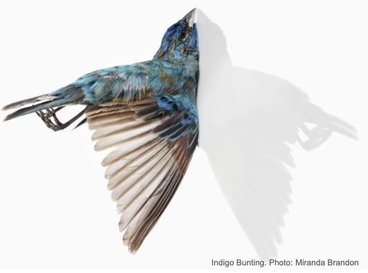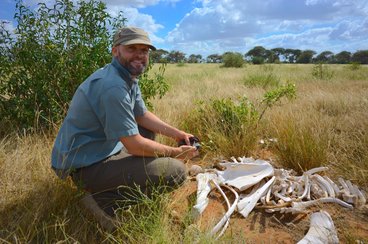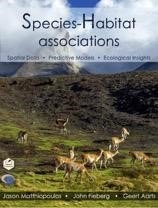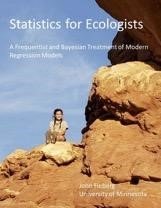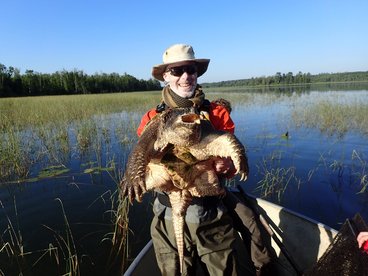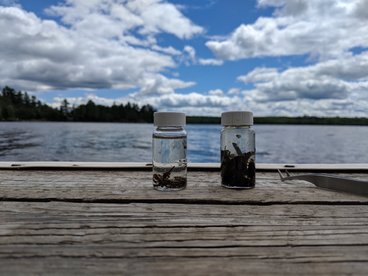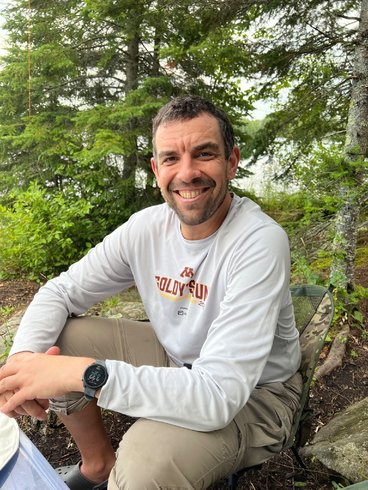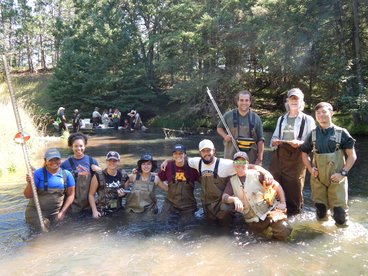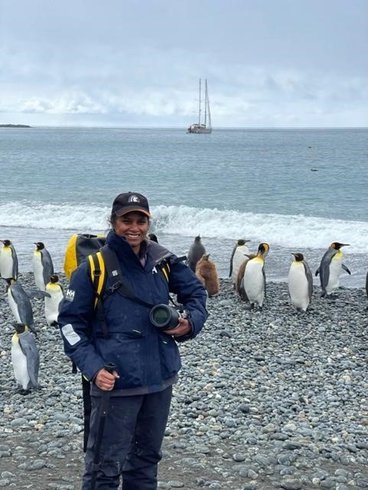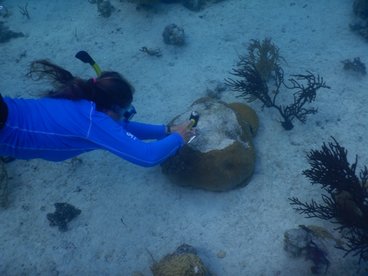The Department of Fisheries, Wildlife, and Conservation Biology at the University of Minnesota
President's Postdoctoral Fellowship
What: a postdoctoral position
The Department of Fisheries, Wildlife, and Conservation Biology (FWCB) at the University of Minnesota seeks applicants for a Postdoctoral President's Fellowship.
Candidates should have research expertise applicable to the understanding, conservation, and management of biodiversity, focused on species, communities, or landscapes, including human dimensions of conservation and management of biodiversity. We seek someone
whose research, teaching, and service will contribute to diversity, inclusion, and equal opportunity in the department, the college, and the university. We are interested in scholars with the potential to bring to their research and teaching the perspective that comes from their educational background or their understanding of the experiences of groups historically underrepresented in higher education.
The FWCB President's Postdoctoral Fellow will receive strong mentoring in research from their primary advisor as well as a team of three faculty who will ensure that they are included in all functions of the department.
FWCB wants the President's Postdoctoral Fellow to hone their skills as a teacher as well. To this end, we propose to have them, in their first year, co-teach an introductory undergraduate course with one of our exceptional teaching faculty and, in their second year, teach a small class in their area of expertise. These experiences will advance their teaching capabilities, allow them to learn from an accomplished teacher, and enable them to develop two courses that they could teach in the future.
Additionally, the fellows will be able to participate in broader activities with PP Fellows within the college, at the University, and nationally. Finally, the department will support the fellows in attending two national disciplinary conferences a year so that they will begin establishing themselves on the national stage.
This is a two-year position. Over the course of the appointment, the Fellow will receive periodic reviews to help them achieve the goals of the position. If the Fellow is successful in the responsibilities described for the position, they will be offered a tenure-track faculty position in the Department of Fisheries, Wildlife, and Conservation Biology. Please see the official position description for details and timing of the review process.
Who: research mentors
The range of possible areas of academic scholarship in the Department of Fisheries, Wildlife, and Conservation Biology is wide.
As a Presidential Postdoctoral Fellow, you will work with a specific faculty member in the department and become an integral part of their lab. The following faculty members are enthusiastic about serving as mentors:
Todd Arnold - Waterfowl ecology & management
My research interests focus on the ecology and conservation of wetland- and prairie-dependent wildlife, particularly waterfowl. Recent research has focused on better methods of estimating population size of wetland and grassland wildlife, estimation of population vital rates (e.g. nest success, brood survival), and development of population models to guide management activities and predict future population trajectories.
Email: [email protected]
Rob Blair - Avian ecology, urban ecology, citizen science
The Blair Lab works at the intersection of avian urban ecology and public science. I am fascinated by Earth's landscapes in today's Anthropocene. While many ecologists and conservationists choose to concentrate on pristine habitat islands and endangered species, I prefer to focus on the "unswimmable ocean" of the human-dominated landscape. I believe that understanding how species thrive (or not) in heterogeneous human-created landscapes is central to conserving biodiversity. I am also dedicated to involving everyone in doing science. Whatever the name -- citizen science, volunteer monitoring, public participation in scientific research, and community science -- our lab wants the public to be involved in all stages of the scientific process: from creating projects, through collecting data, to implementing policy based on new information that they have discovered. I have a strong background in public outreach and science education. If you are interested in combining research and outreach, this is the lab to investigate.
Joseph Bump - Animal ecology, aquatic-terrestrial links, carnivore ecology, carrion ecology
Professor Bump holds the Gordon W. Gullion Endowed Chair in Wildlife Research and Education and is Director of Graduate Studies for the Conservation Science Program at the University of Minnesota. Bump's advising approach focuses on communication: foremost he aims to understand and enable the goals of mentees. Bump’s focus is on the functional role wildlife species play—alive and dead—in ecosystems and how that applies to biodiversity conservation. He currently leads research projects in Voyageurs, Isle Royale, and Yellowstone National Parks, across Minnesota, and in Switzerland, Kenya, and India. Bump’s curiosity in the natural world began with a childhood spent mucking around the Hudson River and Tivoli Bays in ‘upstate’ New York. He earned most of his college tuition by catching salmon as a commercial set net fisherman on the northside of Kodiak Island, Alaska, which was a formative experience in the natural world. Undergraduate field courses at the University of Michigan’s Biological Station confirmed Bump’s interest in animal ecology and he finished a biology degree in just a little over four years. Jobless at the turn of the century, Bump followed a woman west to Wyoming and through much luck, support, and steady effort he bounced between the Great Lakes and the Rockies, earning degrees and positions until now. He lives in St. Paul, Minnesota with two sons, a cat, a dog, and the same love that led him west.
John Fieberg - Statistical ecology
I am a quantitative ecologist. As such, there is no problem requiring a quantitative solution that is, potentially, not of interest to me. Most of my recent research, however, focuses on the development and application of methods for understanding why animals are found in some places and not others (i.e., species distribution, habitat selection, and animal movement models). I would be keen to work with anyone that shares these quantitative interests as well as candidates that are interested in quantitative ecology and statistical education more broadly.
Email: [email protected]
James Forester - Quantitative landscape ecology
My research has largely focused on understanding how animals alter their habitat selection and movement paths in response to heterogeneity in resources and risk; however, I am more generally interested in how landscape patterns affect ecological processes. I look forward to mentoring a postdoctoral scholar who is interested in quantitative landscape ecology—potential areas of study could include understanding the connectivity of landscapes, spatial disease ecology, or linking heterogeneity in landcover to population dynamics. I encourage researchers who are broadly interested in the theory and application of landscape ecology to contact me.
Gretchen Hansen - Freshwater Ecosystems and Fisheries Ecology
In Dr. Gretchen Hansen's lab, we examine freshwater ecosystems and communities in the context of environmental change. Our research focuses on pattern and process in aquatic systems, and management responses to local, regional, and global change. To answer complex questions we employ multiple approaches including statistical analyses of historical data, observational field studies, simulation modeling, and large-scale experimentation. We collaborate with local, state, and federal agencies to conduct actionable science relevant to policymakers and community members.
Ken Kozak - Amphibians & reptile biogeography and evolution
Research in the Kozak lab is centered on understanding how species spread, diversify, and accumulate across the landscape over time. To address these questions, we collect and analyze genetic and ecological data in a spatial framework. Our most recent research focuses on understanding the ecology of speciation, identifying the evolutionary and ecological factors that limit the geographic ranges of narrowing-ranging species, and predicting how these vulnerable species will respond to climate change. The lab welcomes those interested in addressing these and related questions. Much of the lab’s research has focused on amphibians; however, we have also addressed these questions in other systems including turtles, birds, and fishes.
Email: [email protected]
Dan Larkin - Applied plant ecology, invasion biology, and restoration ecology
Dan Larkin and his team conduct research in applied plant ecology, particularly related to ecological restoration and biological invasions in wetlands, lakes, and prairies. Postdoctoral researchers would have opportunities to address questions at the interface of basic and applied community ecology, synthesizing large community, trait, and other datasets to understand patterns of community change, species interactions, and relationships between plants and their environments. A large emphasis in the lab is translating research findings through extension and other means of outreach to inform restoration and management efforts.
Email: [email protected]
Ray Newman - Aquatic ecology, stream and river ecology
I was originally trained as a stream ecologist under the tutelage of Tom Waters working on trout streams and trophic interactions. After investigating chemical defense in watercress my personal research veered into the lake littoral (biocontrol of Eurasian watermilfoil and more recently water quality and restoration of native macrophytes), however I continue to teach stream and river ecology and would like to mentor the “next” stream ecologist at the University of Minnesota. I have extensive knowledge of streams across the state, particularly the driftless southeast, Twin Cities metro, and the north shore, and am familiar with many of the key management issues. You supply the science and I can help link you with suitable venues and contacts to do outstanding basic and applied research. You will also have the opportunity to revamp and reinvent our stream and river ecology class.
Nick Phelps - Infectious diseases in fish populations, aquaculture
I am the Director of the Minnesota Aquatic Invasive Species Research Center. I study emerging threats to aquatic systems at both the macro and microbial scales in the fields of fish health and aquatic invasive species (AIS), which lie at the intersection of animals, humans and the environment. This has led to many interdisciplinary collaborations in Minnesota and around the world on topics related to aquaculture and aquaponics, fish kills, risk assessment, AIS, diagnostic development and pathogen discovery, ecotoxicology, ecosystem health, and food safety. My educational background also spans disciplines and systems, including a BS in Aquatic Biology, an MS in Aquaculture/Fisheries and a PhD in Veterinary Medicine.
Email: [email protected]
Sushma Reddy - Origins and maintenance of biological diversity, evolutionary history of birds
In the Reddy Lab, I foster researchers with interests in evolutionary biology, phylogenetics, biogeography, conservation/population genomics, and natural history collections. I would be happy to mentor anyone who is interested in integrating genomic, geographic, and/or ecological information to study biodiversity patterns and conservation needs. We have several active projects related to birds in the tropics as well as North America. Additionally, all of our projects utilize museum specimens and promote the value of historical and modern natural history collections. We welcome collaborations in our current projects or new avenues of research.
Email: [email protected]
Lynn Waterhouse - Quantitative Fisheries Science
My research focuses on stock assessment, population dynamics of fishes, and statistical methods - with the goal of analyzing and solving relevant, real world problems. Research is done in both marine and freshwater systems. I am constantly working to expand my statistical toolbox and get excited by learning new methods or applying them in novel ways. I enjoy collaborating on a variety of projects and have worked on statistical analyses for projects related to analyzing acoustic recordings of fish calls, impacts of covid on fisheries, and medical device functionality in hyperbaric settings. I code in R and have very basic knowledge of python. I am currently working on projects involving length assessments of tropical Atlantic tuna, conservation of Caribbean grouper species, drivers of recruitment in cisco, and using species distribution models to look for water bodies vulnerable to invasions by aquatic invasive species in the Upper Mississippi River Basin. My lab is new (I started at UMN in June of 2021) but growing and I am part of the Minnesota Cooperative Fish and Wildlife Research Unit (part of USGS). A postdoc in my lab would have the option to work on an extension of one of my current projects or to develop a novel project using quantitative methods of interest to us both. I am also happy to serve as an informal mentor or coffee break buddy. Prior to being at UMN I worked for John G. Shedd Aquarium in Chicago, Illinois and can offer some insight into working for non-profits. I am also a mom to a inquisitive toddler and we enjoy the outdoors as much as possible.
Email: [email protected] or [email protected]
Twitter: @Eco_Stats
You can find out more about each of these researchers by visiting the FWCB faculty webpage.
Please contact potential mentors and initiate a conversation about what you can achieve during your fellowship in conjunction with your mentor.
Where: The Department of Fisheries, Wildlife, and Conservation Biology at the University of Minnesota
The Department of Fisheries, Wildlife, and Conservation Biology comprises a diverse and integrative group of scientists working on population biology, ecology, evolution, genetics, conservation, restoration, and management of biological diversity. FWCB has a close association with the Bell Museum and, together with the University community at large, provides exceptional opportunities to develop strengths in research, teaching, and community outreach, including opportunities to build biological collections, direct field courses, and contribute to public education programs.
Additional affiliated research and outreach facilities include the Cloquet Forestry Center, the Lake Itasca Biological Station, the Cedar Creek Ecosystem Science Reserve, the Minnesota Supercomputing Institute, and the Biomedical Genomics Center. Please visit our website to discover the range of work that we do.
The department is dynamic, and UMN offers many opportunities for professional development. You will join a team dedicated to excellence and developing the next generation of fisheries and aquatic biologists, wildlife scientists and managers, and conservationists. We hope that you will apply.
How: Apply now!
The Presidential Postdoctoral Fellowship Program is a national program spearheaded by the University of California. Consequently, you need to apply through their portal at https://ppfp.ucop.edu/info/how-to-apply/application-instructions.html
Because the College of Food, Agriculture and Natural Resource Sciences and the Department of Fisheries, Wildlife, and Conservation Biology are following a modified application process, you will not need to have your potential mentor submit a letter of support. To facilitate timely applications, we have arranged for a generic mentor letter for this position that is needed to complete the application on the national site. To obtain this letter, list Dean Brian Buhr as your mentor using the email address [email protected]. Finalists in our search will have an identified faculty mentor who will replace this generic letter with a specific letter of support.
When: Deadlines
September 1, 2022 – PPFP application window opens
November 30, 2022 – All applicant materials are due.
December 15, 2022 – Letters from faculty mentors and department chairs/heads are due.
For even more information
For all of the details on this position, please see the official position description.

